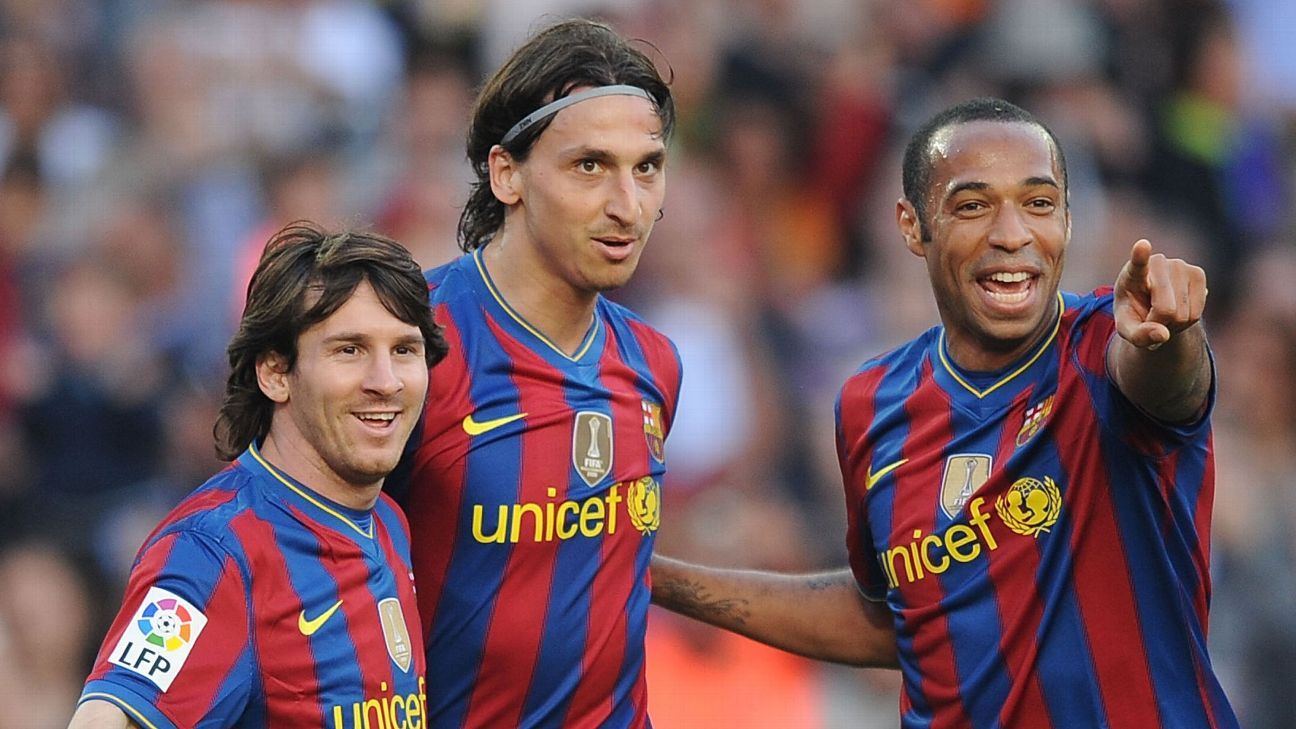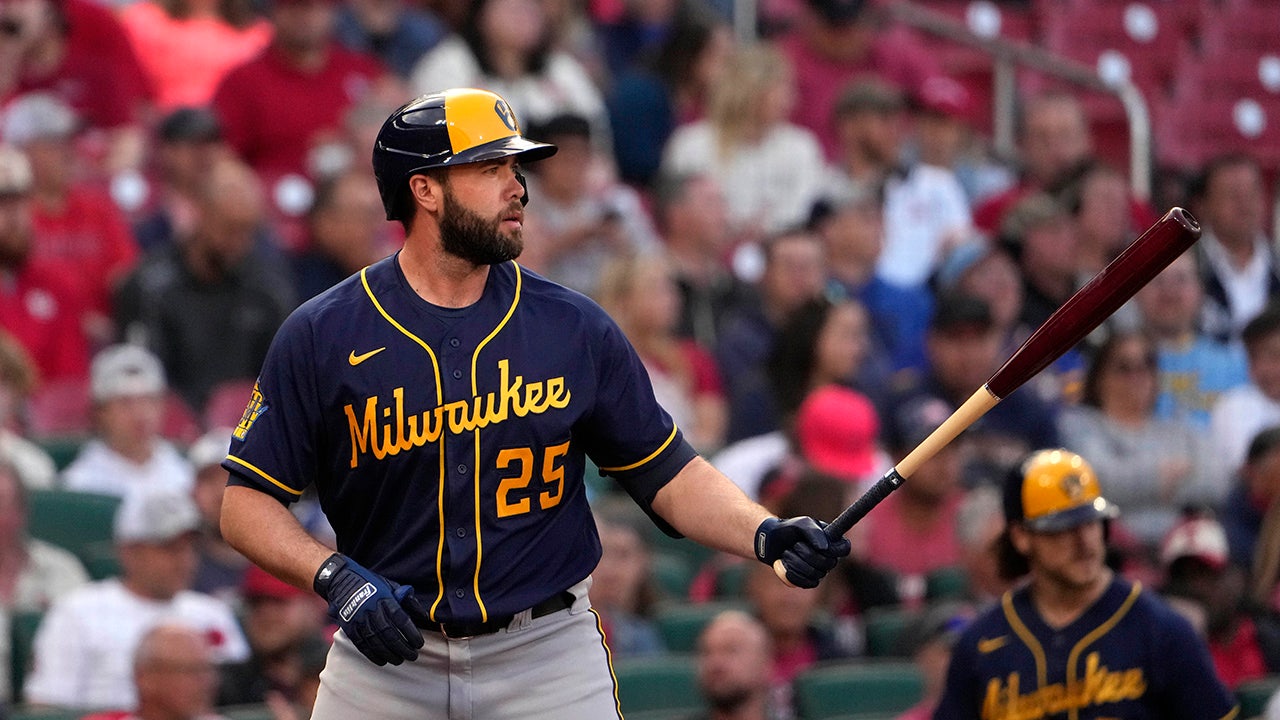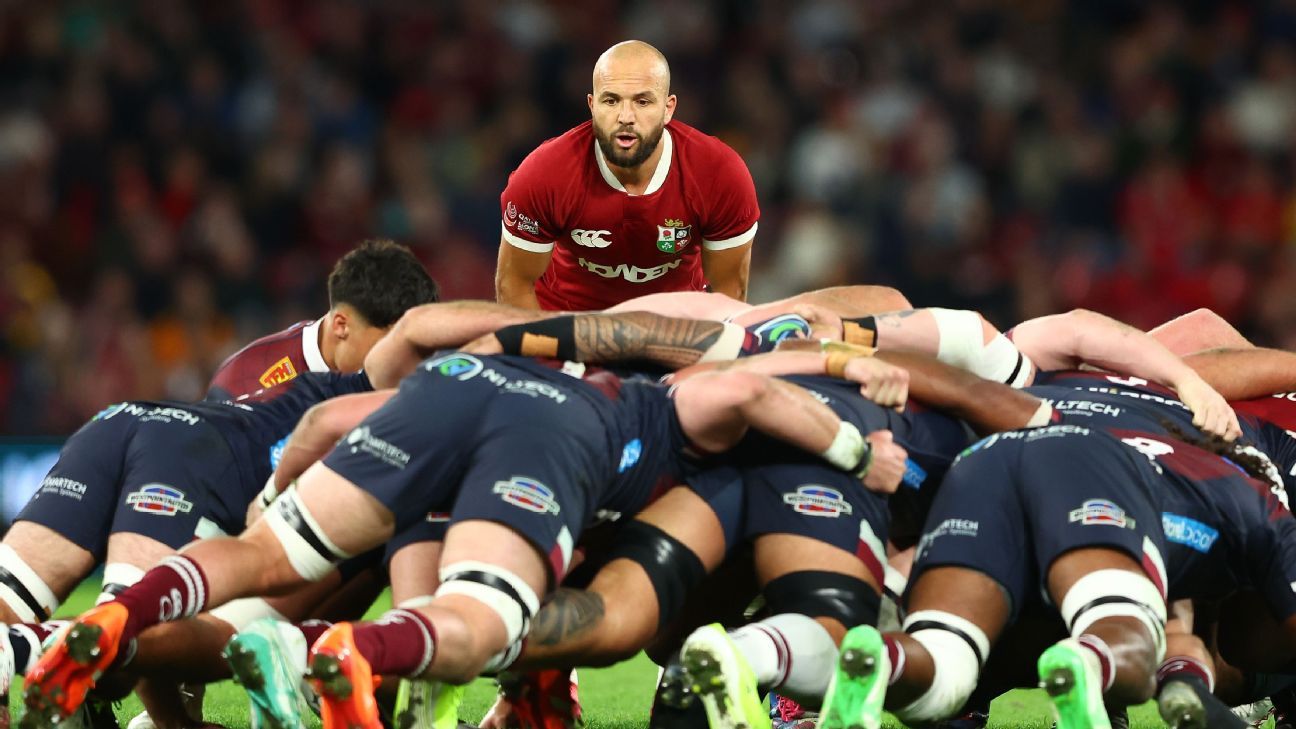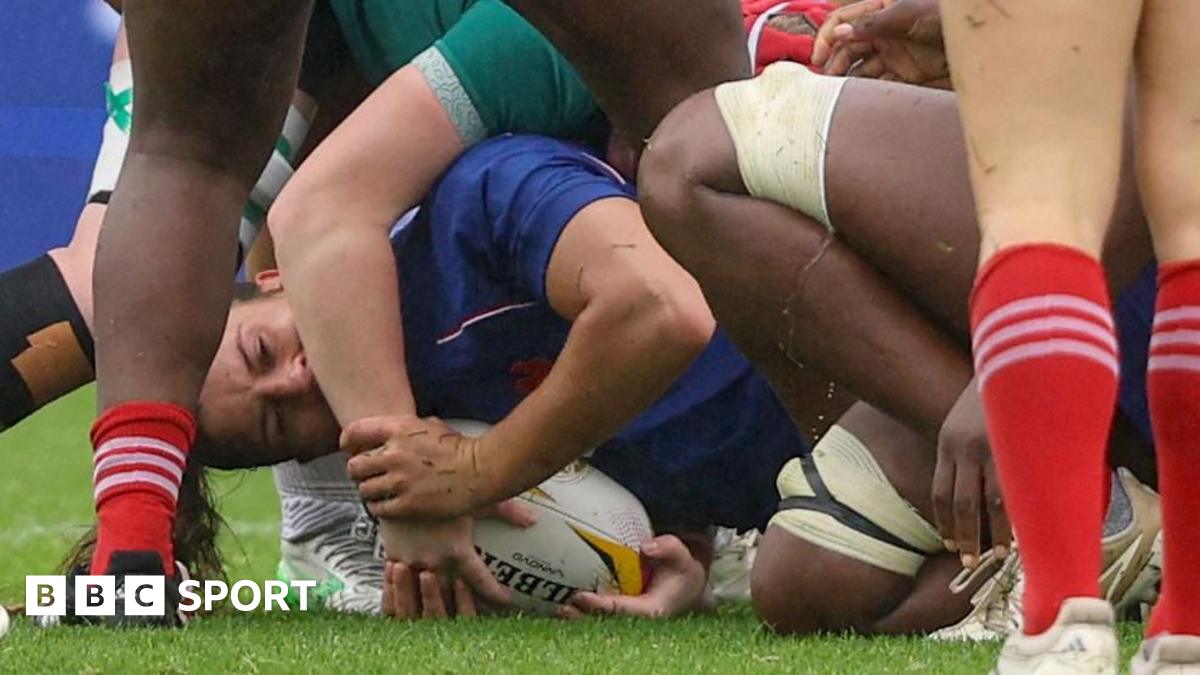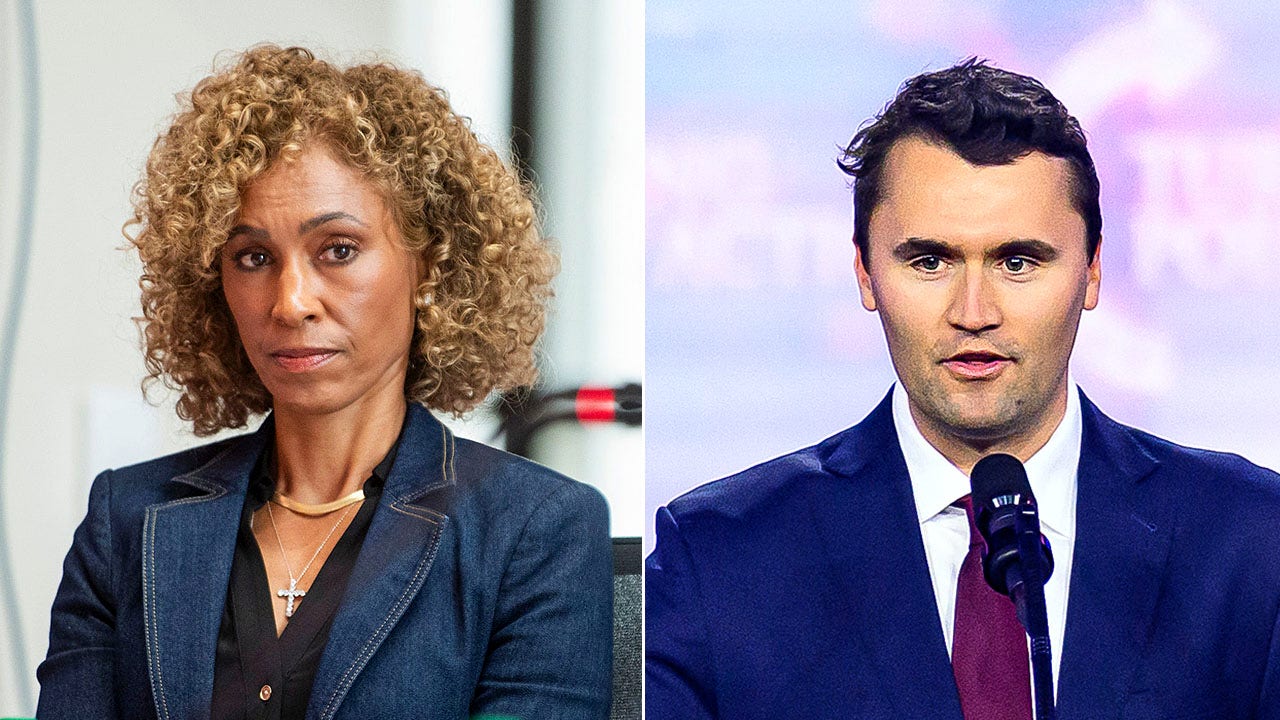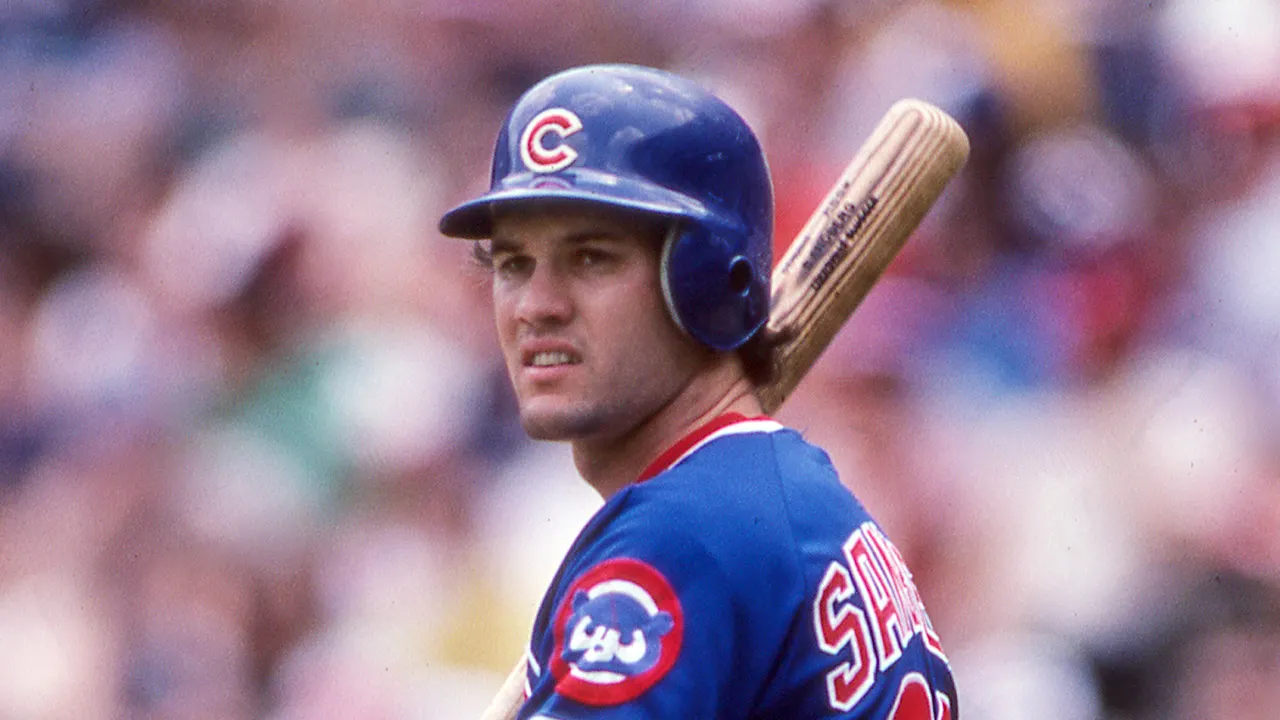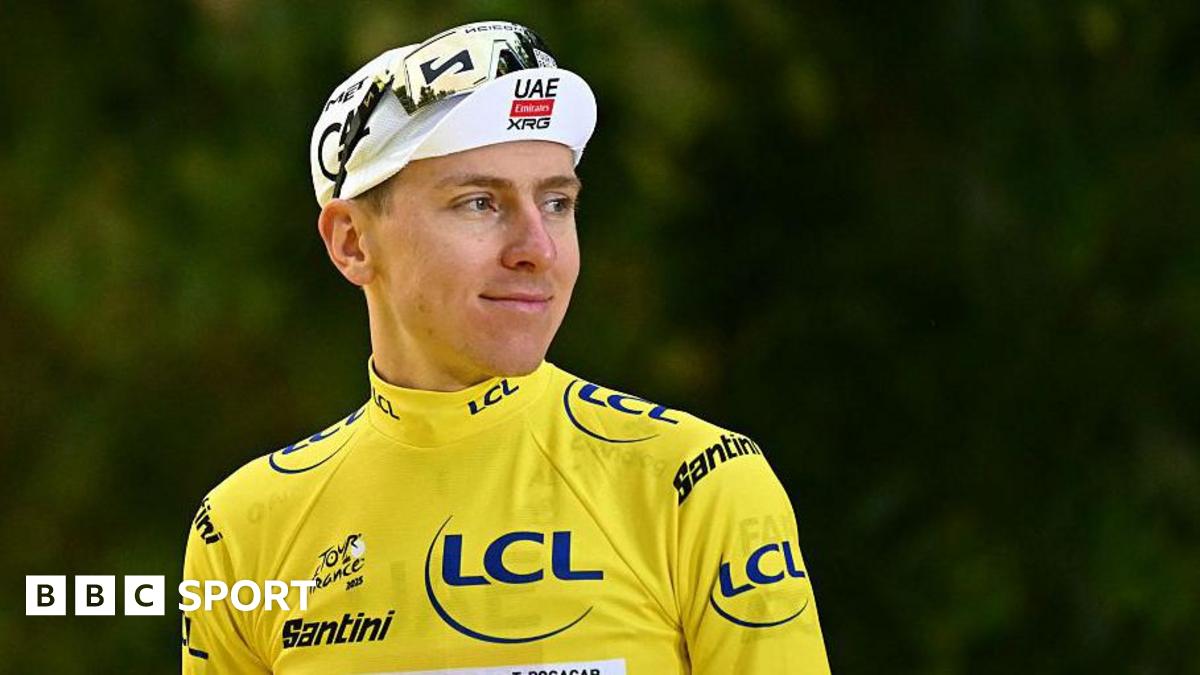It took long enough, but Chelsea’s victory over Paris Saint-Germain in the Club World Cup final marked the end of the 25th European soccer season this century.
And as my colleague Bill Barnwell recognized last week, 25 is halfway to 50 and a quarter of the way to 100. So, he ranked the top 25 NFL teams of the past 25 years, and now I’m here with your ranking of the top 25 club teams of the 21st century.
The way the game is played has changed drastically since 2000. Think of it this way: Oleg Blokhin, Franz Beckenbauer, and Johan Cruyff finished one-two-three in Ballon d’Or voting in 1975. In 2000, the top three were Luis Figo, Zinedine Zidane, and Andriy Shevchenko. If you watch highlights from those two eras, the sport barely resembles itself — and the same amount of time has passed since this century began.
But that doesn’t mean we can’t compare teams across the past 25 years. To do so, I’ve looked at every season played across Europe’s Big Five top leagues since 2000. First, I ranked all of those teams by a combination of points per game and goal differential per game, with a 60-40 weighting in favor of points. Then, I adjusted for league difficulty, based on the average ratings for each league in each of the past 25 seasons from the Club Elo ratings.
From there, I awarded teams with bonus points for winning the Champions League, reaching the final, reaching the semifinals, reaching the quarterfinals, and reaching the round of 16. Based on those points, the final rating comes out to about a 70% weight for domestic performance and a 30% weight for Champions League performance. Given that domestic play isn’t as prone to random fluctuation as the Champions League since the schedules are balanced and there are three times as many games, that feels about right to me.
Now, let’s get to the top 25 of the past 25 years …
25. PSG, 2024-25
-Points per game: 2.47
-Goal differential per game: plus-1.68
-Champions League: winner
Fittingly, the 25th-best team of the past 25 years is the best team of 2025. Two other PSG teams produced more points in Ligue 1, and four outscored their opponents at a higher rate. But Luis Enrique’s side found a way to do what no other PSG side could do and concentrate their excellence down into the most important part of the season: from March until May.
24. Real Madrid, 2023-24
-Points per game: 2.5
-Goal differential per game: plus-1.61
-Champions League: winner
Remember that whole spiel about methodology in the intro? That was a lie. This is just a list of the teams that won the past 25 Champions League titles, in reverse chronological order.
OK, now that’s a lie — because only 12 Champions League winners even made the list.
The funny thing about Real Madrid is that they frequently win the Champions League without playing all that well in LaLiga. In 2002, they won the European Cup despite 66 points, a plus-25 goal differential, and a third-place finish in Spain. That level of performance in LaLiga this past season would’ve put them in the Europa League next year.
As for the 2023-24 team, they were terrible in the first half of the final against Borussia Dortmund, but unlike in years past, they didn’t need smoke-and-mirrors-and-95th-minute goals to get there. Yes, they took down Manchester City in a shootout and Bayern Munich with a late comeback, but they hung tight with City for most of the matchup and significantly outplayed Bayern in the semis. This also was borne out in the league: They finished 10 points ahead of second, took home 95, and lost one game all season.
23. Barcelona, 2016-17
-Points per game: 2.37
-Goal differential per game: plus-2.1
-Champions League: quarterfinalist
This was the last year of the Luis Enrique, Lionel Messi, Luis Suárez and Neymar era. It featured the famous comeback against PSG, but neither a European nor domestic league triumph. But this Barcelona team reached 90 points in the league and produced a plus-79 goal differential, which was 14 goals better than first-place Real Madrid. Most notably, they scored 116 goals in LaLiga — the third most of any team across the Big Five leagues this century.
This team won everything with these players and this coach — and it still feels as if they won less than they should’ve.
22. Real Madrid, 2013-14
-Points per game: 2.29
-Goal differential per game: plus-1.74
-Champions League: winner
Yes, they finished third in LaLiga that year, but 87 points, a plus-66 goal differential, and a Champions League title is an all-time great season for most clubs.
Ángel Di María, in particular, was incredible in his last year in Spain. He played as a kind of hybrid winger/midfielder who covered all of the ground that the front three of Cristiano Ronaldo, Karim Benzema, and Gareth Bale wouldn’t. His pass map from the Champions League final is unlike anything I’ve ever seen before:
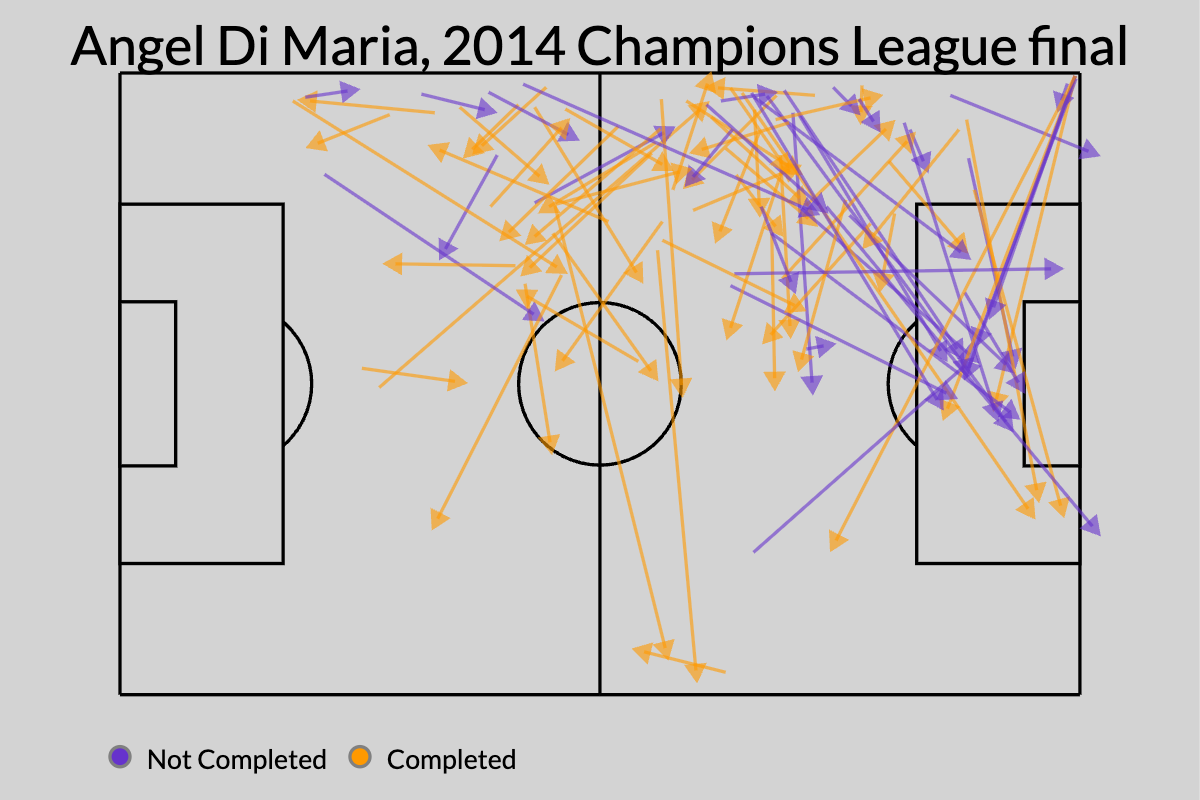
Di Maria was able to be a supporting glue-guy or a goal-scoring superstar. Manchester United signed him after this match — and they still found a way to screw it up.
21. Manchester City, 2022-23
-Points per game: 2.34
-Goal differential per game: plus-1.61
-Champions League: winner
Arguably the greatest Premier League team of all time is … 21st?
This Man City team was like this season’s PSG team: They finally figured out a way to turn it on at the right time. But other City sides were way more dominant from start to finish than this team was. Five other City teams produced better point totals and eight other City sides produced better goal differentials. To win the Champions League, you don’t need to win it when you’re at your best. It’s too random and chaotic for that. No, to win the Champions League, you have to either A) be Real Madrid, or B) be good enough to win it, year after year after year.
20. Bayern Munich, 2015-16
-Points per game: 2.59
-Goal differential per game: plus-1.85
-Champions League: semifinalist
After losing the first leg of the semifinals to Atletico in Madrid 1-0, Bayern needed to win by multiple goals at home to advance. And well, they certainly did enough to get there:
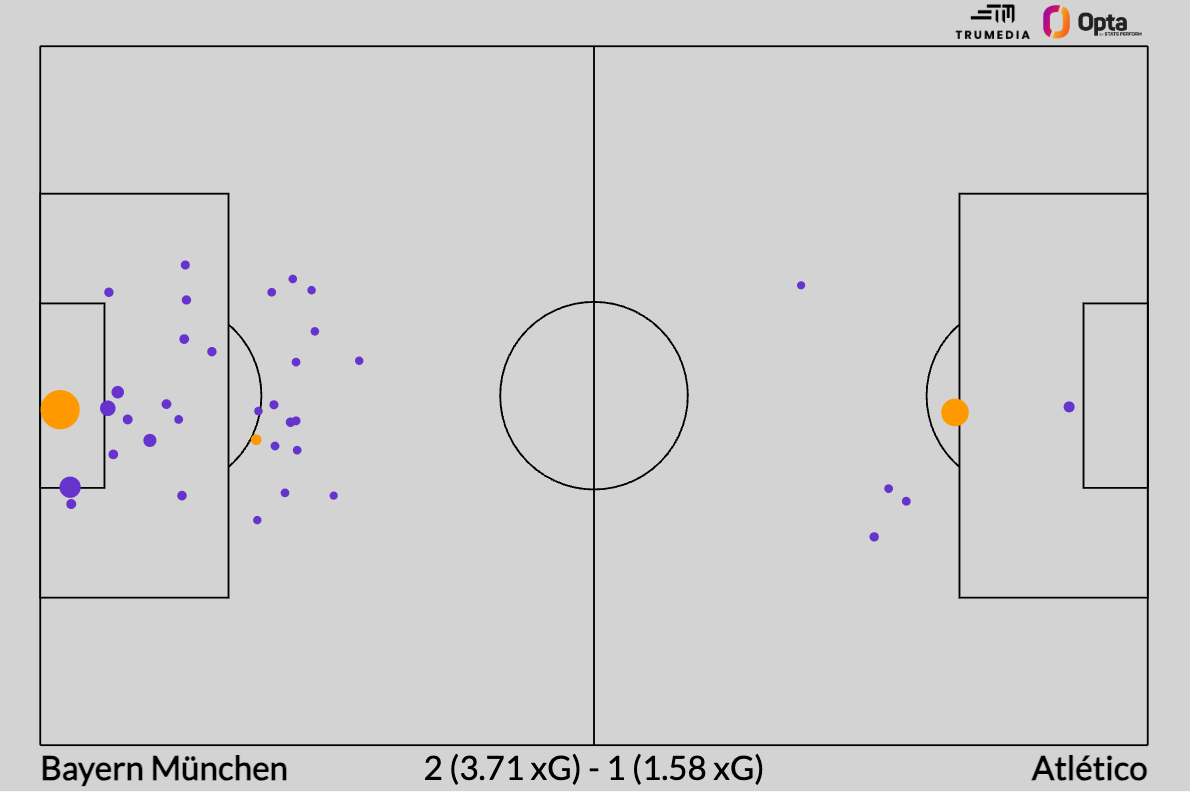
They would’ve been up 2-0 after 35 minutes, but Jan Oblak saved Thomas Müller’s penalty, and Atletico eventually advanced on away goals. All in all, this was probably the best Bayern team of the Pep Guardiola era, even if they’re not our highest rated. And a missed penalty from a club legend was all that kept them from being favored over Real Madrid in the final.
19. Barcelona, 2008-09
-Points per game: 2.29
-Goal differential per game: plus-1.84
-Champions League: winner
This team started Messi, Samuel Eto’o, and Thierry Henry up front. Dani Alves was in his prime. The midfield stars, Xavi and Andres Iniesta, were just entering theirs. Pep Guardiola still had hair. They outscored their opponents 105-35 in LaLiga. And they easily dispatched the Ronaldo-Rooney-Tevez Manchester United side in the Champions League final.
Somehow, this isn’t even close to being the best Barcelona team of the 21st century.
18. Liverpool, 2021-22
-Points per game: 2.42
-Goal differential per game: plus-1.79
-Champions League: runner-up
To me, this was the best Liverpool team of the Jurgen Klopp era. The arrival of Ibrahima Konaté and the health of Joel Matip gave Liverpool a second world-class center back next to Virgil van Dijk. The one truly healthy season of Thiago meant that the midfield was able to maintain its defensive solidity while adding a world-class level of attacking creativity. And instead of Mohamed Salah, Sadio Mané, and Roberto Firmino, it was those three plus the late Diogo Jota and Luis Díaz.
They were a couple kicks of the ball away from becoming the only English team to ever win the quadruple. Instead, all they got were a couple domestic cup trophies and this lousy 18th spot on our list.
17. Manchester City, 2021-22
-Points per game: 2.45
-Goal differential per game: plus-1.92
-Champions League: semifinalist
To me, this also might’ve been the best City team of the Guardiola era. He always has secretly hated the restrictions that strikers put on his tactics and this team didn’t need one, with Raheem Sterling, Kevin De Bruyne, Ilkay Gündogan, Phil Foden, Riyad Mahrez, Jack Grealish and Gabriel Jesus all able to contribute elite-level attacking production from elsewhere on the field. Rodri really found his footing in this season, and João Cancelo put up an all-time great season at fullback. They were up 2-0 against Real Madrid 11 minutes into the tie, and they were up 5-3 with only injury time to go. They, of course, somehow lost the matchup 6-5.
16. Real Madrid, 2016-17
-Points per game: 2.45
-Goal differential per game: plus-1.71
-Champions League: winner
This is one of my favorite stats: As manager, Zinedine Zidane won more Champions League trophies (3) than LaLiga titles (2) with Real Madrid. This was the one season when he did both.
15. Manchester City, 2018-19
-Points per game: 2.58
-Goal differential per game: plus-1.90
-Champions League: quarterfinalist
Take everything from that section about Bayern in 2015-16 and apply it here: more than enough chances, a legend missing a spot kick and tiebreakers leading to elimination. City lost the first leg of the Champions League quarterfinals in London to Tottenham 1-0 after Sergio Aguero missed a penalty. They needed to win the second leg by two goals and just about did enough to get there:
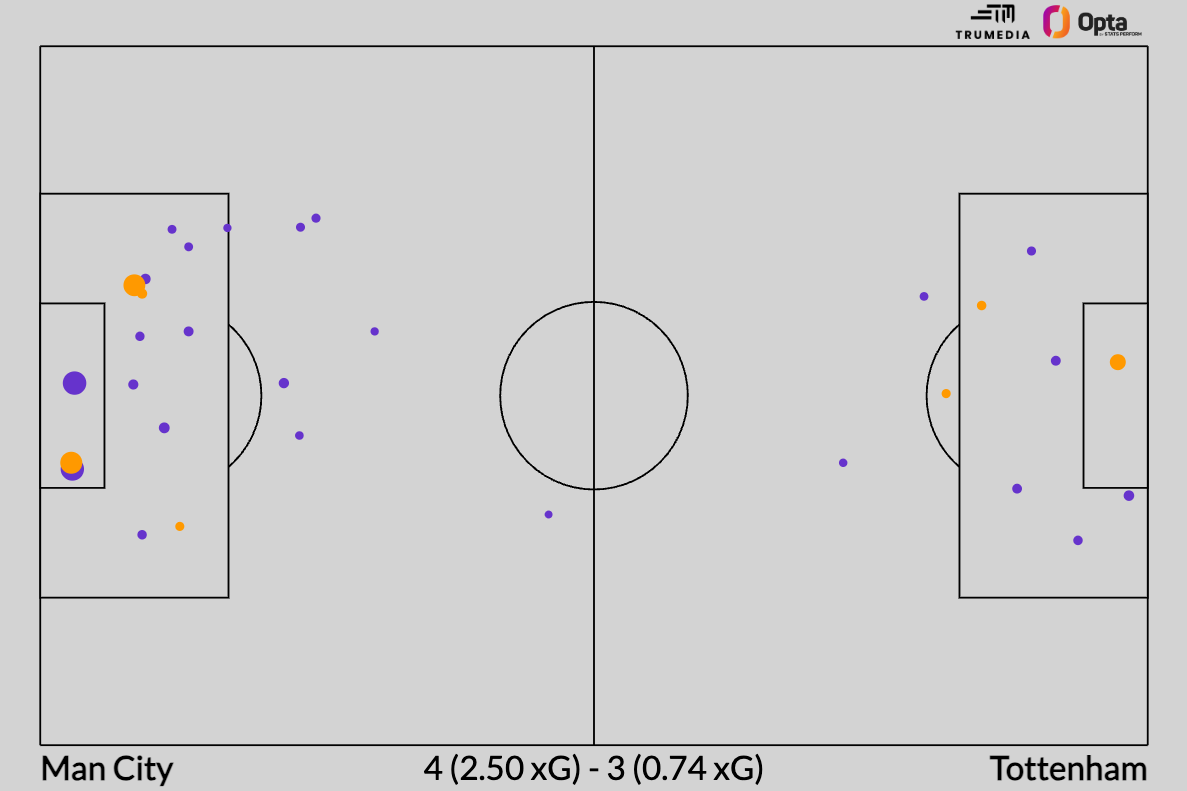
But instead, a bunch of shots went in, and they were eliminated via the away-goals rule by a team that finished 28 points behind them in the Premier League table.
14. Barcelona, 2015-16
-Points per game: 2.39
-Goal differential per game: plus-2.18
-Champions League: quarterfinalist
Since 2000, only two teams across Europe’s Big Five leagues have scored more than 110 goals in a season and given up fewer than 30. Luis Enrique’s second year with Barcelona was one of them. Again, this three-year stretch was even more impressive than anyone remembers.
13. Barcelona, 2009-10
-Points per game: 2.61
-Goal differential per game: 1.95
-Champions League: semifinalist
It’s wild that this season is remembered as something of a failure. Barcelona swapped Samuel Eto’o for Zlatan Ibrahimovic, but then lost to Eto’o and Inter Milan in the Champions League semifinals despite playing a man up for the final hour of the tie. Ibrahimovic scored 16 goals and added six assists in the league, but he was subbed off with a half-hour left in the Inter matchup and left the club after the season.
At the same time, Barcelona won 99 points in LaLiga and conceded 24 goals in 38 matches. Put another way: Real Madrid scored 102 goals, produced 96 points, and didn’t even win the league.
12. Bayern Munich, 2019-20
-Points per game: 2.41
-Goal differential per game: plus-2.0
-Champions League: winner
This was a weird season for two reasons: 1) Bayern fired their coach in November, and 2) The whole, you know, COVID-19 pandemic.
But there’s a reasonable argument that this season should be even higher on the list. I don’t think all Champions League wins are created equal. Some teams have harder schedules, and winning a game 5-0 is a lot different than winning on penalties. It all counts the same, sure, but when we’re comparing teams across history, that stuff matters. Our level of analysis doesn’t get down into quite that level of detail, but if it did, then this Bayern team would benefit.
They played 11 games in the Champions League, and most of the knockout matches were at a neutral site, in an empty stadium. The pandemic led UEFA to cut all remaining knockout ties to a single match, so Bayern didn’t end up playing as many matches as most winners do. But they did do something that no Champions League team has ever done: They won every single game they played in the tournament.
11. Real Madrid, 2014-15
-Points per game: 2.42
-Goal differential per game: plus-2.11
-Champions League: semifinalist
While Bayern fired Niko Kovac and replaced him with Hansi Flik during the previously mentioned season, Real Madrid fired Carlo Ancelotti after the 2014-15 season.
In other words, he won the Champions League — the long-sought-after La Decima, Madrid’s record 10th European Cup — in 2013-14. In the offseason, they replaced the team’s linchpin, Angel Di Maria, with the flashy offense-first star of the 2014 World Cup, James Rodríguez. And in 2014-15, Ancelotti found a way to integrate Rodríguez, as his team set a Spanish record with 22 consecutive wins. They scored 118 goals — the second-most for a team this century. They reached 92 points. And they’re one of only seven teams this century to put up a goal differential of plus-80 or better.
Rather than receiving a lifetime appointment, Carlo Ancelotti was, again, fired after all of that happened.
10. Manchester City, 2017-18
-Points per game: 2.63
-Goal differential per game: plus-2.08
-Champions League: quarterfinalist
The team with the best goal differential and most points in Premier League history lands only in 10th. The basic explanation for why: They lost to Liverpool in the Champions League quarterfinals. The slightly-more-philosophical explanation for why: Fabian Delph started 21 games for this team.
Unfortunately, we never really got to see this iteration of City go up against one of the best teams in the world. And while they decimated the Premier League, their performances in the Champions League weren’t particularly special. Their per-game expected-goal differential across their 10 matches was plus-0.46, just the ninth-best among all the teams in the competition.
9. Barcelona, 2011-12
-Points per game: 2.39
-Goal differential per game: plus-2.24
-Champions League: semifinalist
This was the only season of Guardiola’s four-year Barcelona career when the club didn’t win LaLiga. But they reached 91 points and put up a plus-85 goal differential — outscoring their opponents at a higher rate than all but three other teams this century. They scored 114 goals and conceded 29. Those numbers don’t make any sense! They’re the highest-rated team on this list that didn’t win either major trophy.
8. Barcelona, 2012-13
-Points per game: 2.63
-Goal differential per game: plus-1.98
-Champions League: semifinalist
In Tito Vilanova’s only season as a professional manager, his team tied the LaLiga record for points with 100 and became the first Spanish team to score in all 38 top-flight matches. They ended the season with 115 goals, the fourth most this century, and won the league over Real Madrid by 15 points.
Vilanova had been diagnosed with parotid gland cancer in November 2011. He underwent chemotherapy during the 2012-13 season but soon relapsed. Vilanova resigned from Barcelona in the summer of 2013. In April 2014, he died at age 45.
7. Bayern Munich, 2013-14
-Points per game: 2.65
-Goal differential per game: plus-2.10
-Champions League: semifinalist
In Guardiola’s first season in Germany, Bayern clinched the league title before the end of March. They averaged more points per game than his 100-point City team and they outscored their opponents at a higher rate than any team he has coached outside of the 2011-12 Barcelona side. Compared to every other team, they won more points per game than all but two teams this century, and their per-game goal differential is the eighth-best mark since 2000.
The only major blemish: a 5-0 aggregate loss to Real Madrid in the Champions League semifinals.
6. Real Madrid, 2015-16
-Points per game: 2.37
-Goal differential per game: plus-2.0
-Champions League: winner
They didn’t win the league, but they outscored their opponents by two goals per game in LaLiga and they won the Champions League. This was probably the best combined season from the Ronaldo, Bale and Benzema trio. The former scored 39 goals and added six assists, and the other two ranked third and fourth, respectively in goals and assists per 90 minutes across Europe’s Big Five leagues: 1.51 and 1.41.
And, oh yeah, it was Zidane’s first season as a first-division coach. Improbably, Rafa Benitez was hired to replace Ancelotti, and then he was replaced by the club legend in January. The team had become too lopsided with the addition of James Rodríguez and without the creativity of Ancellotti on the sideline to figure it out.
The fans never liked Benitez, and he didn’t have the cachet to bench an attacker in favor of someone who might straighten out the team. But Zidane did. He brought a young defensive midfielder named Casemiro into the starting lineup and the team never looked back. They won 12 straight games to end the LaLiga season and lifted the first of what would be three straight European Cups.
5. Liverpool, 2018-19
-Points per game: 2.55
-Goal differential per game: plus-1.76
-Champions League: winner
Here’s a list of Big Five teams that have produced at least 97 points and the Champions League in the same season: Liverpool, 2018-19
That’s it. That’s the list.
4. Barcelona, 2010-11
-Points per game: 2.53
-Goal differential per game: plus-1.95
-Champions League: winner
Just to recap: Guardiola’s Barcelona teams ranked 19th, 13th, 8th and 5th. Two of his Bayern teams ranked 20th and 7th. And four of his Manchester City teams ranked 21st, 17th, 15th and 10th. That means that 10 of the 25 teams on this list (40%) were coached by the same guy.
This is the purist’s favorite Barcelona team. The team was finally, fully built around Messi’s ability to dribble, tempo-set, create and score at a higher level than anyone else in the world. David Villa transitioned from a center forward to a kind of box-crashing, goal-scoring winger. Pedro worked really hard off the ball and supported the other two strikers.
Xavi and Iniesta had just finished second and third behind Messi in Ballon d’Or voting. Guardiola had finally moved the modern version of himself, Sergio Busquets, to the base of midfield. No longer was Pep working around the talent he had available to him; this appeared to be the exact talent he wanted.
Their 5-0 win over Jose Mourinho’s Real Madrid might be the most shocking and memorable individual result of this century. And after their 3-1 win over Manchester United in the Champions League final, Sir Alex Ferguson said of Barcelona, “In my time as manager, it’s the best team I’ve faced.”
3. Real Madrid, 2011-12
-Points per game: 2.63
-Goal differential per game: 2.34
-Champions League: semifinalist
For the club that defines itself almost exclusively on whether or not it wins the Champions League, it’s ironic that perhaps their best side did not win the Champions League. It’s doubly ironic when you remember that the team was managed by Jose Mourinho, whose career is defined by the couple of times he has lifted the European Cup.
For those reasons, I think this is probably the most underrated team of the 21st century. For all of the suboptimal conservative decisions made by Mourinho throughout his career, he got this team perfectly right. Across 38 games, they scored a barely believable 121 goals — three more than any team this century.
With 32 goals conceded, they outscored their opponents by 89 goals — tied for the best mark of any team since 2000. Oh, and they put up 100 points — tied for the second most this century behind the 102-point Juventus side from 2013-14 who didn’t get out of their group in the Champions League and didn’t even make this list.
Benzema, Ronaldo, Di Maria, and Gonzalo Higuain all averaged at least 1.0 goals+assists per 90 minutes, while Mesut Ozil added four goals and 18 assists. All of these guys were 26 or younger, then you had 22-year-old Marcelo at left back and 29-year-old Xabi Alonso pulling the strings in midfield. Combine that with Mourinho’s more passive tactical approach without the ball, and I don’t think there has ever been a better team in the open field than this Madrid side.
The main reason no one really talks about 2011-12 Madrid as one of the all-time great teams: They lost a penalty shootout to Bayern Munich in the Champions League semifinals.
2. Barcelona, 2014-15
-Points per game: 2.47
-Goal differential per game: 2.34
-Champions League: winner
Here’s a list of Big Five teams that put up a goal differential better than plus-80 in the same season they won the Champions League: Barcelona, 2014-15
That’s it. That’s the list.
If all of these teams played on a neutral field, these guys would be my pick to win. They put up these incredible season-long numbers (a tied-for-best-this-century plus-89 goal differential) in a season when some Barcelona fans thought the team was in crisis midway through the campaign. In the Champions League, they beat the winners of Ligue 1, the Bundesliga and Serie A. They also eliminated the defending Premier League champs from the tournament, and beat both Real Madrid and Atletico Madrid in LaLiga.
While the Pep-era teams were cohesive possession machines that were fully connected from back to front, Luis Enrique took a bit of a risk and would frequently trust that his superstar front three would be able to break down defenses on their own. And the result is why I’m taking them over anyone else: They conceded 21 goals in 38 games — tied for lowest mark of any team on this list — and then they had a 27-year-old Messi, a 27-year-old, and a 22-year-old Neymar playing up top.
1. Bayern Munich, 2012-13
-Points per game: 2.68
-Goal differential per game: 2.35
-Champions League: winner
While I do think 2014-15 Barcelona are the best team of the century, I don’t think there’s an argument over which team had the best season. It, quite clearly, was Bayern Munich in 2012-13 under Jupp Heynckes.
If we take every single domestic season played across the Big Five leagues since 2000, there is one team alone atop the list of most points per game. And there is one team alone atop the list of best goal differential per game. And those teams are the same team: 2012-13 Bayern Munich. The only reason they’re not ranked higher in any of the totals I’ve mentioned is because the Bundesliga plays only 34 games.
And while the lack of overall strength in the Bundesliga would dampen those numbers in recent years, Bayern did all of that when the German first division was stronger than at any other point this century, per the Club Elo ratings. But you don’t even need the ratings to understand that. Under Jurgen Klopp, Borussia Dortmund had just won back-to-back Bundesliga titles in the previous two seasons, and they reached the Champions League final in 2013. Bayern Munich, then, put together the most dominant domestic season of this century in a year when the second-best team in their league finished second in the Champions League.
Nowhere was Bayern’s dominance clearer than in the semifinals of the Champions League against Vilanova’s Barcelona, the eighth-ranked team on this list. Bayern won the first leg in Germany 4-0, behind a pair of goals from Thomas Muller and one apiece from Arjen Robben and Mario Gomez.
Then, in the second leg at Camp Nou, Robben scored early in the second half to extend the lead, before a Gerard Pique own goal and a capper from Muller finalized the aggregate scoreline at 7-0. Not only did Bayern put up seven, but they held one of the greatest attacking teams of the century (115 league goals!) scoreless across 180 minutes.
But the most shocking thing about Bayern might be this: Robben was their best player, and he started only 11 games in the Bundesliga.

